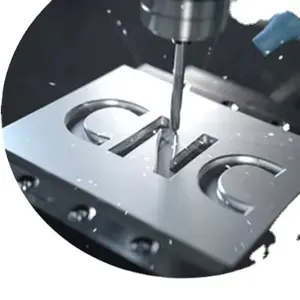
All categories
Featured selections
Trade Assurance
Buyer Central
Help Center
Get the app
Become a supplier

(11355 products available)













































In today's fast-paced industrial landscape, engineering precision machining part have become essential due to their versatility and precision. These services encompass a range of processes that transform raw materials into precise components and parts. By utilizing advanced machinery and skilled technicians, engineering precision machining part ensure that each piece meets exact specifications, making them crucial for sectors such as automotive, aerospace, and medical devices. From small-scale operations to large-scale manufacturing, these services are integral to producing high-quality, reliable products. As technology evolves, engineering precision machining part continue to innovate, offering enhanced capabilities and solutions to meet diverse industrial needs.
There is a wide array of engineering precision machining part available, each tailored to specific requirements and materials. Common types include CNC machining, turning, milling, and grinding. CNC machining is highly favored for its precision and automation, allowing for complex shapes and designs with minimal human intervention. Turning is ideal for creating cylindrical parts, while milling is used for shaping a variety of materials into specific designs. Grinding is employed to achieve high precision and surface finish. Each type of engineering precision machining part offers distinct advantages, ensuring that manufacturers can select the most suitable method for their projects.
engineering precision machining part provide several critical functions that enhance manufacturing processes. These services ensure accuracy and consistency in part production, which is crucial for industries that demand high standards. Features such as computer-aided design (CAD) integration enable precise control over the machining process, reducing errors and waste. Advanced machines can handle a variety of materials, from metals to plastics, expanding their application scope. Additionally, engineering precision machining part offer scalability, allowing for both prototyping and mass production. This flexibility is vital for adapting to changing market demands and technological advancements.
The effectiveness of engineering precision machining part lies in the materials and techniques employed. Common materials include steel, aluminum, brass, and various alloys, each chosen for their specific properties and applications. Techniques such as heat treatment, surface finishing, and coating are often used to enhance material properties, such as strength and corrosion resistance. The integration of computer numerical control (CNC) technology allows for precise manipulation of these materials, resulting in high-quality products. By understanding the characteristics of different materials, engineering precision machining part can optimize processes to achieve desired outcomes efficiently.
Choosing the right engineering precision machining part involves evaluating several factors to ensure optimal results. Consider the complexity and precision required for your project, as well as the type of material being used. Assess the capabilities of the machining service provider, including their equipment, expertise, and track record. It's important to discuss your specific requirements and any potential challenges with the provider to ensure they can meet your expectations. Additionally, consider the turnaround time and scalability of the service to ensure it aligns with your production schedule. By carefully selecting engineering precision machining part , you can ensure efficient and high-quality manufacturing outcomes.
When selecting engineering precision machining part , it's essential to evaluate the capabilities of potential service providers. Look into the range of machinery they operate, as advanced equipment often translates to better precision and efficiency. Assess their expertise in handling various materials and their ability to deliver complex designs. Additionally, consider their experience in your specific industry, as familiarity with industry standards can significantly impact the quality of the final product. Communication is key; ensure the provider is open to discussing your unique specifications and can adapt to your project's demands.
Quality assurance is a critical aspect of engineering precision machining part . Providers should have robust quality control measures in place to ensure each part meets the required specifications. This includes regular inspections, testing, and adherence to industry standards. Certifications can be a reliable indicator of a provider's commitment to quality. Additionally, inquire about their process for addressing any defects or discrepancies that may arise during production. A provider with a strong focus on quality assurance will likely deliver more consistent and reliable results.
While price is a significant consideration when choosing engineering precision machining part , it's important to understand the factors that influence cost. Material selection, complexity of the design, and the precision required are all elements that can impact pricing. Additionally, the provider's location and the scale of production may affect costs. It's crucial to balance quality and cost-effectiveness, ensuring that you receive the best value for your investment. Discuss potential cost-saving strategies with providers, such as bulk production discounts or alternative material options.
CNC technology plays a pivotal role in engineering precision machining part by offering enhanced precision and automation. It allows for complex designs to be executed with minimal human intervention, ensuring consistency and reducing errors.
To ensure the machinability of materials in engineering precision machining part , consult with the service provider about the specific properties of the material. Factors such as hardness, tensile strength, and thermal conductivity can affect machinability.
Common challenges in engineering precision machining part include maintaining precision in complex designs, managing material waste, and ensuring optimal tool wear. Regular maintenance of equipment and skilled technicians can mitigate these issues.
Yes, engineering precision machining part are equipped to handle custom designs. Providers often use CAD software to translate unique specifications into precise machining instructions, accommodating a wide range of custom requirements.
Turnaround time in engineering precision machining part can be affected by the complexity of the design, the volume of production, and the availability of materials. Efficient scheduling and resource management by the provider are crucial for timely delivery.